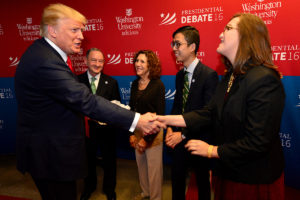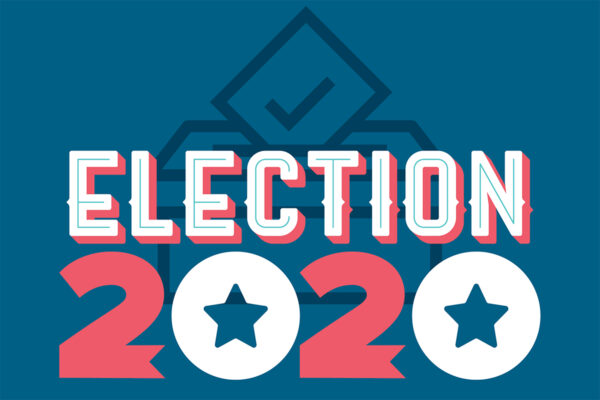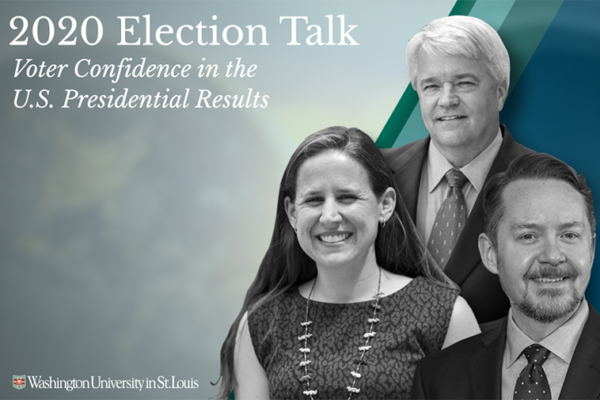
America spoke in November, one month after the candidates collided in the presidential debate held Oct. 9 at Washington University in St. Louis. In the days that followed the historic 2016 election, faculty experts across campus offered their perspectives on the economy, the legislative responses, the cultural and global ripple effects.
Now a cluster of Washington University faculty experts is speaking to the future — relying on their research, teaching, intellectual capital and rich experience to offer advice for, and about, the new administration that officially took office Jan. 20 with the inauguration of President Trump.
Their advice spans fields from law to the humanities, on topics ranging from immigration law that Congress should pass to how best to approach environmental issues. What follows are snapshots of their advice for the administration, departments, press and public (click their names for full articles):
Trump Administration
Mary Politi, School of Medicine: “As the Trump administration considers repealing and replacing the Affordable Care Act (ACA), I urge the president to support a plan that continues to provide financial assistance to low-income Americans… . Without federal subsidies, many vulnerable individuals with chronic medical conditions will be unable to afford health insurance and, by extension, the medical care they need. In such situations, taxpayers and the health-care providers would have to pay the health-care costs for those who are uninsured. I also urge the administration to continue expanding Medicaid so that low-income residents are not caught in situations where they earn too much to qualify for Medicaid and too little to receive federal subsidies to purchase health insurance.”
Gautam Dantas, School of Medicine: “Now more than ever, our venerable national institutions that support scientific research — such as the National Institutes of Health (NIH), National Science Foundation (NSF), and Centers for Disease Control and Prevention (CDC) — deserve sustained increases in federal funding. Time and again, basic science discoveries enabled by such public investments have changed the face of modern medicine and directly benefited American taxpayers. Indeed, my lab’s recent work to discover new cures for infectious diseases was directly helped by early support from the NIH. Similarly, investments by NIH and CDC have enabled my colleagues and me to make critical advances in understanding antibiotic resistance, which will enhance our abilities to more safely and effectively treat infectious diseases that harm millions of Americans.”
The 115th Congress
Stephen Legomsky, Law: “Almost all observers agree that the current immigration laws are broken, but the 115th Congress has the chance to fix them. It can do so by enacting comprehensive immigration reform (CIR) along the lines of the bill passed by a bipartisan Senate super-majority in 2013 … . CIR died when the then-speaker refused to permit a vote. It is now time to resurrect it, and there is no need to start from scratch. The 2013 Senate bill can certainly be tweaked, but it remains a readily available starting point.”
Maxine Lipeles, Law: “Don’t make environmental protection a political or partisan issue. For roughly the past half-century, national leaders of both parties have recognized that environmental protection benefits all Americans, regardless of party affiliation, and that the health risks posed by pollution threaten us all. With respect to climate change, we cannot afford to tread water or retrench. Pretending to deny it only increases the harm that we will suffer by not working sensibly to reduce greenhouse gas emissions and adapt to the changes that are already and will soon be upon us. Public opinion — across party lines — strongly supports action to address climate change.”
Education
Michael Wysession, Arts & Sciences: “If Betsy DeVos, President Trump’s pick to lead the U.S. Department of Education (DoED) among his many wealthy cabinet-head candidates, is able to carry out her plans of slashing the department she would head, the losers will be, once again, the poorest and neediest children of America. In a terrible irony, rural school districts — from where came some of the president’s largest election support — will see some of the hardest hits in educational funding. These areas often rely heavily upon Title I, which provides financial assistance to local schools with high numbers of children from low-income families.”
Labor
Adia Harvey Wingfield, A&S: “I urge the Department of Labor to be mindful of the myriad challenges facing workers in a neoliberal economy where worker protections are becoming increasingly rare. Work has changed so much over the past half-century, often in ways that increase employees’ stress and uncertainty; exacerbate economic, racial and gender inequality; and depress wages. Labor secretary nominee Andrew Puzder has personal and professional ties to Washington University, and is spoken of highly by some members of our community who know him personally. Given that, I hope that he will utilize these ties to avail himself of academic experts and researchers who can show him data-driven studies about contemporary work and labor issues.”
Journalists
Greg Magarian, Law: “The Trump administration appears likely to complicate the [administration-media relationship] challenge in a way that offers bold journalists an opportunity … . Denying access to journalists is bad government practice, but professional political journalists should embrace the snub … . Professional political journalists should train their gaze beyond the corridors of power to seek out, and call out, the actual consequences of the Trump administration’s policy choices. That initiative will advance both journalistic professionalism and press freedom.”
Congress, journalists and public
Joan Strassman, Arts & Sciences (in Scientific American): “As a scientist, I object to (President Trump’s) unfounded assertions, including those on climate change, the impact of Planned Parenthood on the lives of women and children, and the Affordable Care Act, to name just a few … . Mr. Trump and his team make many specific assertions that disregard evidence about issues vital to women, children, families and the environment. Decisions not based on evidence that are instead based on prejudice, personal preference or ideology are bad decisions.”
Lamar Pierce, Olin Business School: “People are hardwired not to act against their own self-interest. They respond to incentives, and are psychologically gifted at justifying self-interest. It is impossible to expect our new president or his appointees from the private sector to consistently pursue national interest before personal profits, when they’ve spent their entire lives doing the entire opposite. Congress, the press and the public must acknowledge and highlight these conflicts and demand that they be addressed.”
Alan Lambert, Arts & Sciences: “If there is anything that Americans should have learned from Donald Trump, it’s to expect the unexpected. For example, some of Trump’s cabinet picks — e.g., his choice for secretary of state, Rex Tillerson — seem to be consistent with his own friendly stance towards Vladimir Putin … . If there is one certainty in all of this, however, it is the fact that Trump enjoys the spotlight, and it is safe to say that his first 100 days — and beyond — are likely to be anything but boring.”
FDA, NIH
Michael S. Kinch, associate vice chancellor and professor of biochemistry and molecular biophysics: “Healthcare coverage and costs are just the start of it. The new administration faces a looming crisis in our fundamental ability to continue introducing new medicines. The old system is faltering and nearing failure, creating both a potential crisis and fantastic opportunity. Strong leadership skills will be needed to ensure that we can continue delivering much-needed improvements to health. While we still await the selection of leadership for the Food and Drug Administration, National Institutes of Health and other key organizations, the rumored candidates for these positions raise serious concerns whether the new president fully realizes the implications of these decisions.”
Activists
Clarissa Rile Hayward, Arts & Sciences: “It’s crucial as we enter these first 100 days to refuse to cede control over the political agenda … . We need to keep in mind that one of the great successes of the major social movements of our era has been their capacity to shape public discourse. The left should devote its energy and creativity to agenda-setting political interventions, specifically those that exploit the cleavage within Trump’s coalition between fiscal conservatives and the working-class people to whom he’s made promises that he can’t keep without alienating fiscal conservatives.”
Just for fun: The First Dog
Richard Chapman, Arts & Sciences: “Since every dog has his day, let’s hope you’re frolicking on the South Lawn in the First 100. So here are a few tips:
- “Don’t overreact to sound bites. It’s OK to bite back, but sometimes a vicious snarl will keep those press hounds at bay.
- “Don’t be distracted by all the tweets. I know you’ve got some bird dog in you, but stay focused in that Rose Garden. And when they go low, you jump high.
- “Ignore the late-night howls of Jimmy Kimmel and Seth Meyers. Ignore it, they’re fake jokes.
- “Lastly, quit cozying up to that Russian Wolfhound in the next cage. Her bite is worse than her bark.”
Read more “First 100 Days” messages at Election2016.wustl.edu.




Comments and respectful dialogue are encouraged, but content will be moderated. Please, no personal attacks, obscenity or profanity, selling of commercial products, or endorsements of political candidates or positions. We reserve the right to remove any inappropriate comments. We also cannot address individual medical concerns or provide medical advice in this forum.